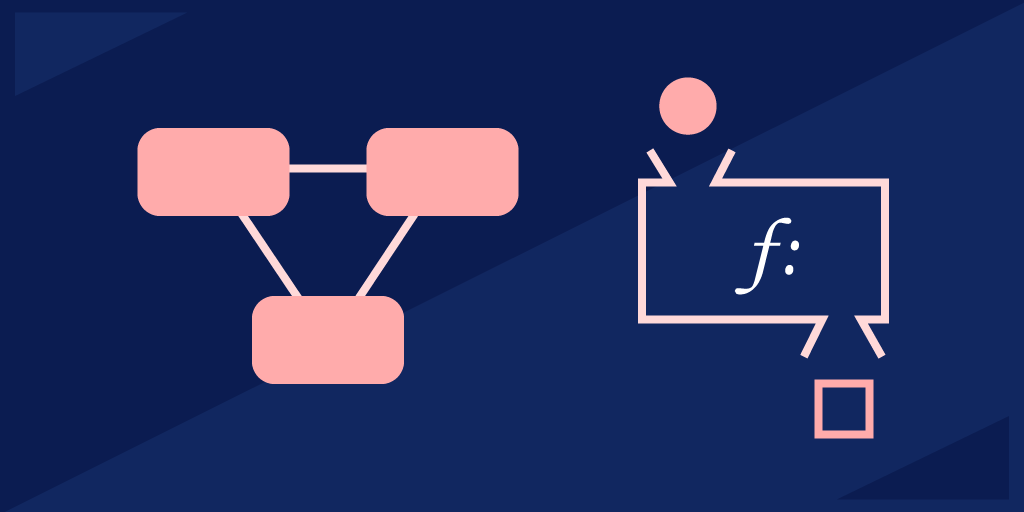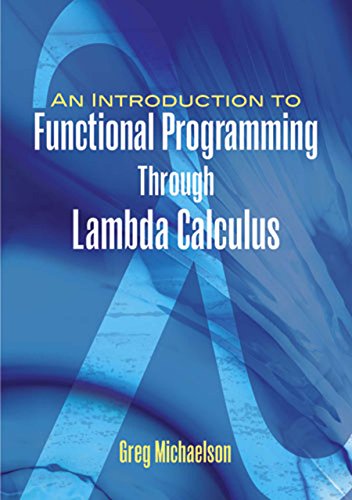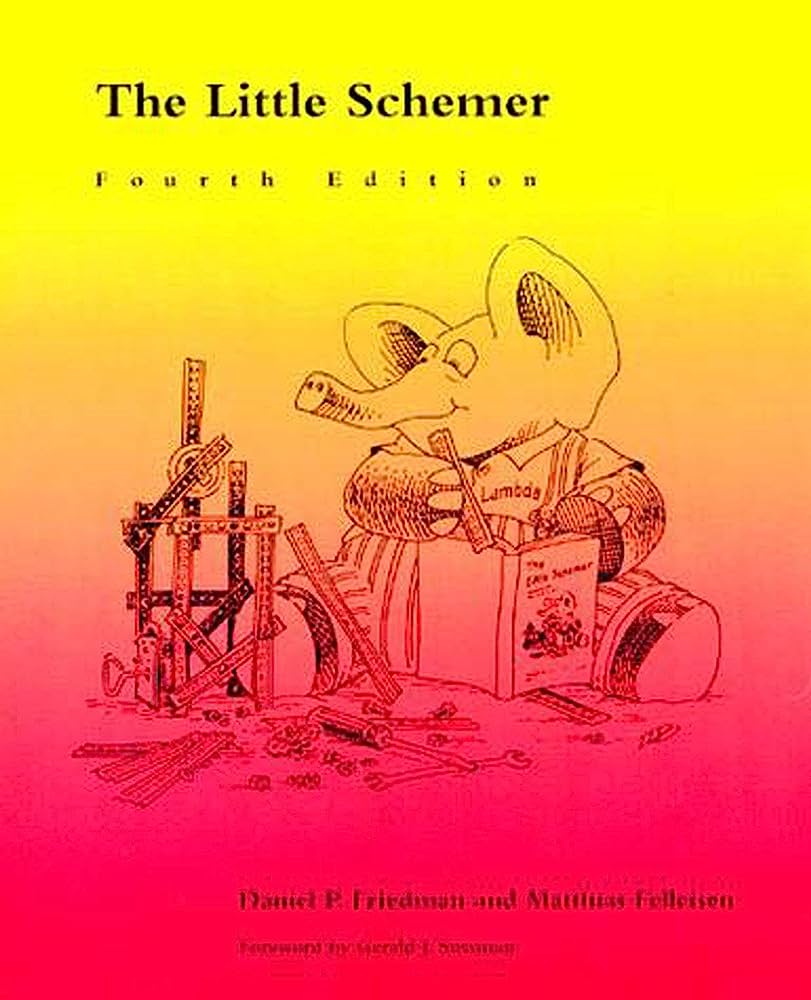Functional Programming: A Modern Approach to Software Development

As software development continues to evolve, different approaches and paradigms have emerged, each with its own unique perspective on how to best write code. Among them, functional programming has seen a surge in popularity due to its simplicity, scalability, and elegance. But what exactly is functional programming, and how does it compare to other prevalent paradigms like object-oriented or procedural programming?
What is Functional Programming?
Functional programming (FP) is a paradigm that treats computation as the evaluation of mathematical functions and avoids changing-state and mutable data. Its foundation lies in lambda calculus, which is a formal system in mathematical logic for expressing computation based on function abstraction and application.
Here's a simple functional programming example in JavaScript:
const numbers = [1, 2, 3, 4, 5]
const doubledNumbers = numbers.map(num => num * 2)
console.log(doubledNumbers) // Output: [2, 4, 6, 8, 10];const numbers = [1, 2, 3, 4, 5]
const doubledNumbers = numbers.map(num => num * 2)
console.log(doubledNumbers) // Output: [2, 4, 6, 8, 10];In this example, we're using the .map() function to create a new array (doubledNumbers) where each element is twice the value of the corresponding element in the original numbers array. Notice that the original array remains unchanged, emphasizing immutability - a key concept in functional programming.
My Journey into Functional Programming
My fascination with functional programming didn't occur overnight - it was a gradual process fueled by curiosity, a few key resources, and a great deal of practice. It started when I delved into lambda calculus, the theoretical foundation of functional programming.
I found "An Introduction to Functional Programming Through Lambda Calculus" to be a very interesting read. This book opened the door to understanding how functional programming distills the essence of computation. The deep dive into lambda calculus provided a theoretical backdrop against which the principles of functional programming started to make much more sense.

Cover of the book "An Introduction to Functional Programming Through Lambda Calculus"
After finishing that book, I stumbled upon "The Little Schemer", a book that stands out due to its unique format of asking thought-provoking questions about code, interspersed with answers. The book uses Scheme, a dialect of Lisp, to teach important concepts in programming and computation. It was my first real interaction with Lisp, one of the earliest programming languages to incorporate lambda calculus principles. It was an amazing experience seeing theoretical concepts being applied practically.

Then, I moved to "Realm of Racket: Learn to Program, One Game at a Time!" which introduced me to Racket, another descendant of Lisp that's known for its excellent capacity to build domain-specific languages. This book brought an element of fun into learning. Building games using functional programming was an interesting and practical way to strengthen my grasp of the paradigm.

Cover of the book "Realm of Racket: Learn to Program, One Game at a Time!"
These books, along with countless hours spent practicing and exploring functional programming, have contributed to my understanding and love for this paradigm. I've found that functional programming isn't just a different approach to writing code, it's a different way of thinking about problems and solutions. It's certainly a journey I'd recommend to any curious developer!
Why Functional Programming?
Immutability and Pure Functions:
In functional programming, data is immutable, meaning once a variable is assigned a value, it can't be changed. This results in functions that are pure - they don't cause side effects, and they don't depend on or alter the state of the outside world. Their output solely depends on their input.
For instance, in JavaScript, the .map() function is pure because it returns a new array rather than modifying the original one:
const numbers = [1, 2, 3, 4, 5]
const doubledNumbers = numbers.map(num => num * 2)
console.log(doubledNumbers) // Output: [2, 4, 6, 8, 10]
console.log(numbers) // Output: [1, 2, 3, 4, 5]const numbers = [1, 2, 3, 4, 5]
const doubledNumbers = numbers.map(num => num * 2)
console.log(doubledNumbers) // Output: [2, 4, 6, 8, 10]
console.log(numbers) // Output: [1, 2, 3, 4, 5]The benefits of pure functions extend beyond avoiding unwanted side-effects; they also make your code easier to understand and reason about, because you know they won't change the state of the world around them.
Easier Debugging and Testing:
Given that functional programming is stateless, it's easier to predict what your program will do, making it easier to test and debug. Every function, if given the same input, will always produce the same output, and won't alter anything else in the process.
Consider the previous example with .map(): no matter how many times you call it with the same input array, you'll always get the same output array. This predictability is a significant advantage when it comes to debugging because you know exactly what a function will do.
Concurrency and Parallelism:
Concurrency in programming involves performing multiple computations simultaneously, and parallelism refers to executing multiple computations at the same time. The principles of functional programming, such as immutability and statelessness, eliminate the risks of shared state and mutable data, making it easier to write safe concurrent and parallel applications.
In the era of multicore processors and distributed computing, being able to efficiently use concurrency and parallelism can significantly improve your program's performance.
Code Reusability and Modularity:
Functional programming emphasizes the use of small, self-contained functions that perform a single operation. This leads to highly modular code where functions can easily be reused across your application. This not only reduces code duplication but also improves readability and maintainability.
For example, here's how you could write a reusable function to find the sum of an array of numbers:
const numbers = [1, 2, 3, 4, 5]
const sum = numbers.reduce((a, b) => a + b, 0)
console.log(sum) // Output: 15const numbers = [1, 2, 3, 4, 5]
const sum = numbers.reduce((a, b) => a + b, 0)
console.log(sum) // Output: 15This reduce() operation could be extracted into a reusable sum() function that could be used across your application:
const sum = arr => arr.reduce((a, b) => a + b, 0)
console.log(sum([1, 2, 3, 4, 5])) // Output: 15
console.log(sum([10, 20, 30])) // Output: 60const sum = arr => arr.reduce((a, b) => a + b, 0)
console.log(sum([1, 2, 3, 4, 5])) // Output: 15
console.log(sum([10, 20, 30])) // Output: 60By embracing functional programming, you are committing to a paradigm that fosters clean, efficient, and robust code.
Functional Programming Vs Other Paradigms
One of the most common paradigms, Object-Oriented Programming (OOP), differs significantly from FP. While OOP bundles data and behavior together in objects, FP keeps data and behavior separate. For example, while OOP might use an object's method to manipulate its data, FP would use a function to perform the same task without altering the original data.
Here's a simple comparison in JavaScript:
// OOP Approach
let obj = {
value: 1,
increment: function () {
this.value += 1
}
}
obj.increment()
console.log(obj.value) // Output: 2
// FP Approach
let value = 1
const increment = val => val + 1
value = increment(value)
console.log(value) // Output: 2// OOP Approach
let obj = {
value: 1,
increment: function () {
this.value += 1
}
}
obj.increment()
console.log(obj.value) // Output: 2
// FP Approach
let value = 1
const increment = val => val + 1
value = increment(value)
console.log(value) // Output: 2Conclusion
Functional programming, with its roots in mathematical logic and emphasis on pure, side-effect-free functions, offers a compelling approach to writing robust, clean, and efficient software. While it might require a shift in thinking for those accustomed to paradigms like object-oriented programming, the benefits it brings in terms of code predictability, testability, and concurrency make it well worth exploring.
Related Articles
The Resurgence of Vinyl and Analog Photography
A personal reflection on the resurgence of vinyl records and analog photography, exploring the nostalgic charm of these vintage formats and drawing parallels with the process of software development.
My Journey to Master Testing: A Reflective Guide for Developers
Ever since I embarked on my software development career, one fundamental truth has stood out - testing is a non-negotiable part of the process. It was the beacon of light that guided me when I delved into the darkest corners of complex codebases.
